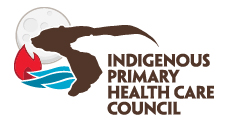Mental Health & Wellness
Indigenous people and communities have a wholistic view of Mental Health and Wellness. Health and Wellness is a state of balance with self, family, community, and the land. The Model of Wholistic Health and Wellbeing is used to describe this wholistic view, which conceptualizes wellbeing as balance across physical, spiritual, emotional, and mental aspects of the self. It is important for models of care to integrate Indigenous ways of being and to recognize that Indigenous people and communities have the right to the best possible physical and mental health. They also have the right to exercise self-determination over the healthcare they receive. Indigenous Health Centres have the unique experience and expertise necessary to provide Mental Health, Wellness and Addictions care that is culture-based, culturally safe, and of the highest quality.
The IPHCC 2024 Mobile Solutions for MHA service provision: Early implementation considerations
The increasing popularity of mobile delivery methods has resulted in many organizations contemplating the development of mobile programs to meet the mental health and addictions (MHA) needs of their communities.
To support their decision-making, the Indigenous Primary Health Care Council (IPHCC) retained the services of Birchwood Consulting to engage with existing mobile MHA clinics across the province in order to identify key planning considerations and share lessons learned during the early phases of implementation.
This report summarizes key findings from nine interviews with representatives from Mobile MHA Clinics funded by Ontario Health’s MHA Centre for Excellence and mobile Rapid Access Addictions Medicine (RAAM) clinics between August and December 2023. It includes a set of recommendations to guide planning and tools to support early-stage implementation of mobile MHA solutions.
The IPHCC 2020 Tools of Resilience Report: Addressing the wellbeing needs of Indigenous people by honouring culture as treatment provides an understanding of Indigenous community-governed MHA programs and services in Ontario.
- Culture—that is, Indigenous ways of knowing and being—lies at the centre of wholistic wellbeing, as it provides the means of re-establishing balance across all areas of the self. In practice, this means that care is not divided into separate silos for physical health, traditional healing, mental health, health promotion, etc. Instead, services provided by Indigenous hHealth cCentres simultaneously address clients’ physical, spiritual, emotional, and mental needs.
- As the Truth and Reconciliation Commission (TRC, 2015: 160) observes, “Indigenous peoples have the right to physical and mental integrity, as well as the right to equal enjoyment of the highest attainable standard of physical and mental health.” In order to ameliorate health disparities, it is necessary that “Indigenous peoples have the right to be actively involved in developing, determining, and administering health programs that affect them. Indigenous peoples also have the right to traditional medicines and to maintain their traditional practices” (TRC, 2015: 160).
- Indigenous Health Centres in Ontario aim to fulfill these rights by providing comprehensive primary health care, including MHA services. Because of their accountability to the Indigenous communities they serve, only Indigenous-governed health centres are able to provide care that is culturally safe. They create environments where clients feel comfortable, respected, and supported. However, in order to fully actualize this vision of self-determination in health care, Indigenous Health Centres need to be able to provide a full continuum of programs and services for clients with MHA challenges.
Why is Wholistic Mental Health and Wellness Important?
Historical trauma resulting from colonization, forced acculturation and the residential school system have contributed to intergenerational trauma and mental health disparities in the Indigenous populations in Canada, which experience higher rates of mental health concerns, addictions and suicide.
Social determinants of health such as poverty, unemployment, housing and food security, social exclusion and discrimination play a major role in the mental health challenges faced by Indigenous populations.
System Coordination
- Working collaboratively with partners to support Indigenous models of care
- Building strong relationships to support equity and inclusion within the healthcare system
- Promotinge Mental Health and Wellness system coordination to identify service gaps and systems barriers for Indigenous populations
- Supporting the development of recommendations and planning activities that could support greater coordination across the healthcare system
- Engaginge with IPHCC members, service providers and network of system coordinators to gather information to improve client pathways, to identify and compare trends, service delivery gaps, and coordination of models and programs
Mental Health Resources
The IPHCC recognizes the need for access to culturally safe and appropriate Mental Health Resources and Supports. The IPHCC has members throughout Ontario, including Aboriginal Health Access Centres – we encourage individuals to reach out to your local AHAC when seeking supports.
Network for Aboriginal Mental Health Research – Mental Health Programs for Aboriginal People in Canada
A database that is frequently updated with mental health resources for First Nations, Métis, and Inuit peoples across Canada. http://www.namhr.ca/
First Nations, Métis & Inuit
Hope for Wellness Help Line –
If you’re experiencing emotional distress and want to talk, call the First Nations, Métis & Inuit Hope for Wellness Help Line: 1-855-242-3310. Available 24/7, Canada-wide or connect to the online chat at www.hopeforwellness.ca.
Kids Help Phone – Call 1-800-668-6868, or to speak to an Indigenous volunteer crisis responder, message FIRST NATIONS, INUIT or METIS to 686868 for young people and 741741 for adults.
